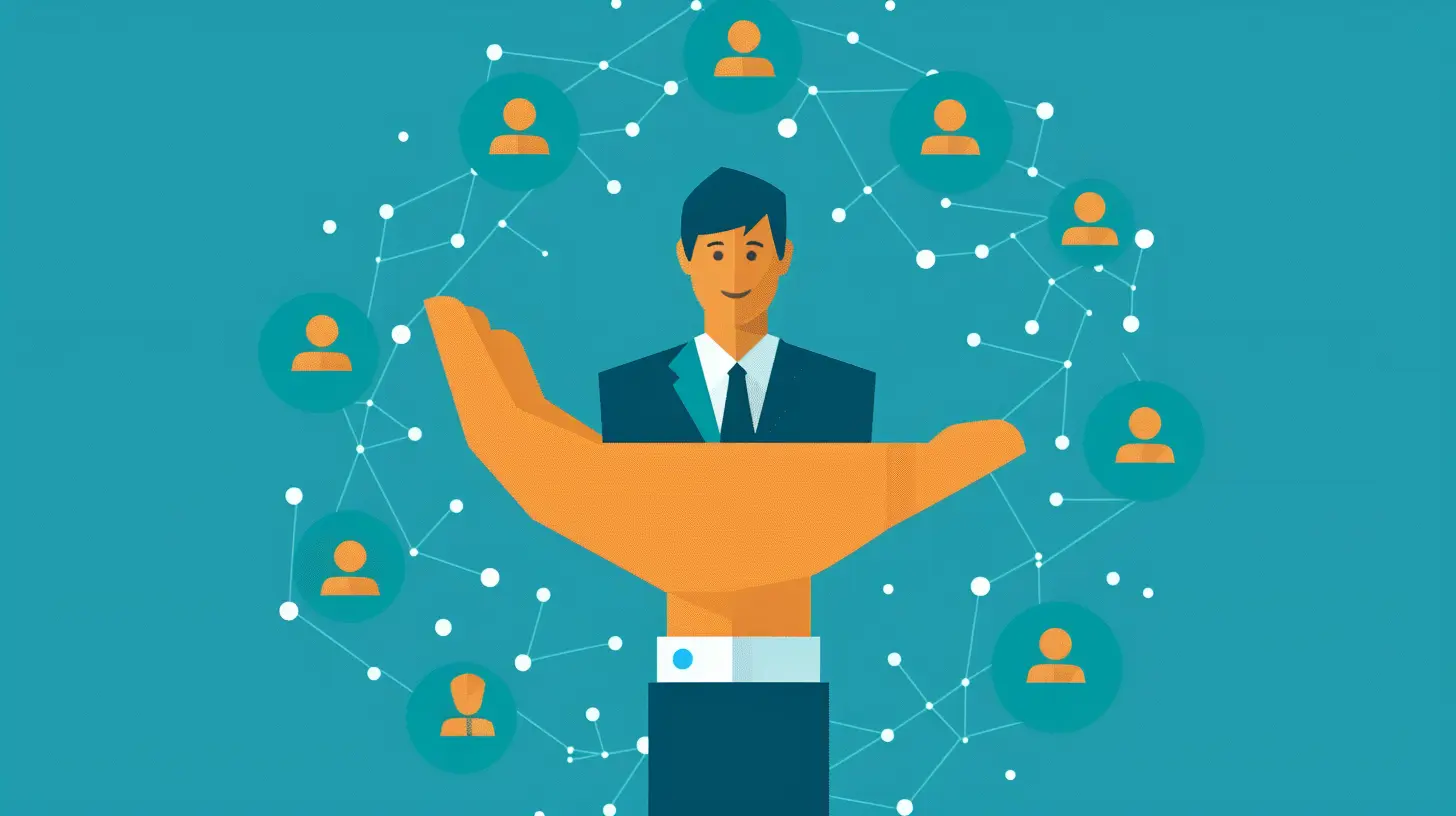HR's Role in Safeguarding Employee Data and Ensuring Privacy
18 August 2025
Ah yes, privacy—the mythical unicorn that everyone talks about but no one really understands. Except for HR… or at least, they’re supposed to. In a world where data breaches are as common as coffee breaks, HR professionals have become the unexpected superheroes (minus the cape and with way more paperwork).
But let’s be honest—protecting employee data sounds boring, right? Like something buried in the 57th page of an employee handbook. However, in today’s digital jungle, it's a legit battlefield. The emails, the spreadsheets, the cloud storage, the old filing cabinet that somehow still exists—yep, it all needs ironclad protection.
So, pull up a chair and brace yourself for a rollercoaster ride through the sensitive (but super important) world of employee data, and how HR—yes, HR—is the gatekeeper we all didn’t know we needed (or appreciated).
Why HR is Now Basically a Spy
Let's start with some facts. HR departments are sitting on a goldmine of personal data. Like a digital Fort Knox, only without the gold and with way more allergies, emergency contacts, and social security numbers.We're talking about:
- Full names (duh)
- Social Security Numbers
- Bank account details
- Health information
- Performance records
- Disciplinary actions
- Even that weird note from 2019 about someone heating fish in the microwave
So essentially, HR holds the keys to every employee’s kingdom. And if that data leaks? We're not just talking about a slap on the wrist. We’re talking lawsuits, fines, lost trust, and maybe even a special appearance on the evening news.
No pressure though.
The "Oops-I-Lost-The-Data" Horror Stories
Before we dive into all the ways HR saves the day, let’s get spooky for a second. Because nothing gets people paying attention like a data breach horror story.Remember that time a major company had thousands of employees' data leaked because someone (who shall remain nameless) emailed payroll spreadsheets to the wrong recipient? Or the time an innocent USB drive left in a coffee shop turned into a full-blown PR crisis?
Yep. Those were real. Literally happened. These aren’t just IT problems—they’re HR nightmares. And the worst part? The victims usually didn’t even know their data was floating around in cyberspace until it was too late.
HR's Role: More Than Just Birthday Emails
So what magical responsibilities does HR really have when it comes to protecting employee data?Glad you asked.
1. Data Collection With a Conscience
HR must stop hoarding data like it’s rare Pokemon cards. Just because you can collect every detail doesn’t mean you should. HR needs to stick to collecting only what's absolutely necessary.Do you really need to know someone’s favorite pizza topping? Probably not. But salary details, emergency contacts, and work history? Yes, that’s your zone.
Golden Rule: Collect only what you need, and destroy what you don’t.
2. Keeping It Confidential, Darling
Confidentiality isn’t just some fancy legal term. It’s the life raft keeping your organization from drowning in privacy lawsuits.HR professionals have to make sure that only authorized folks have access to sensitive data. That means no sharing salary info during coffee breaks and definitely no gossiping about disciplinary actions.
Airtight confidentiality policies? Non-negotiable.
3. Training: Because Common Sense Isn’t So Common
Let’s face it—some people think “phishing email” means someone’s angling for a free lunch. That’s where HR swoops in with training that’s not just a groan-worthy PowerPoint show.We're talking interactive workshops, real-world examples, maybe even a quiz or two (but keep it fun, please). Teach employees how to recognize shady emails, safeguard their passwords, and not leave sensitive papers lying around like yesterday's leftovers.
4. Partnership With IT: The Odd Couple
HR and IT? It’s a love-hate relationship, like cats and cucumbers. But when it comes to protecting data, these two must work hand-in-hand.HR brings the human side, IT brings the tech, and together they make sure everything from password policies to secure cloud environments is rock solid. Think Batman and Robin, but with more network cables.
5. Privacy Policies That Don’t Read Like Sleep Aids
Yes, we get it. Nobody wants to read lengthy privacy policies. But they’re essential. HR should ensure those documents are not only legally sound but also understandable by the average human.Plain English, clear sections, and maybe even a TL;DR at the top, if you’re feeling generous.
6. Monitoring with Morals
Tracking productivity? Fine. Reading someone’s emails without cause? Not fine.HR must find that delicate balance between keeping tabs on employees and respecting their privacy. Over-monitoring creates distrust and resentment. Under-monitoring creates chaos. HR gets to walk that tightrope with all the grace of a caffeinated acrobat.
The Legal Side: Because Jail Doesn't Look Good on Anyone
Let’s not forget… there are actual laws about this stuff. GDPR, HIPAA, CCPA—just a bowl of delightful acronyms designed to keep companies in check.HR needs to know these laws like the back of their hand. Violating them isn’t just a bad day—it could mean millions in fines and a reputation meltdown.
So yes, HR pros basically have to be part-lawyer, part-IT specialist, part-therapist, and still remember to send out the company birthday card. Piece of cake, right?
Remote Work = New Headaches
And just when HR started getting the hang of data privacy in the office… BAM! Everyone started working from home. On personal laptops, through unsecured Wi-Fi, sometimes with a cat walking across the keyboard during a Zoom call.Remote work added a whole new layer of risk. HR has to team up with IT (again) and ensure:
- Proper VPN usage
- Data is not being saved on personal devices
- Access to info is tightly controlled
- And no confidential files are being printed and left on the kitchen counter
Spoiler alert: They usually are.
HR Tools & Tech: There’s an App for That (Too Many, Actually)
Nowadays, there’s an HR software solution for everything. But not all tools are created equal. HR must vet vendors carefully to ensure the apps they're using actually meet security standards.Look for platforms with:
- Two-factor authentication
- End-to-end encryption
- Role-based access
- Audit logs (so you know who peeked at what and when)
HR should always choose quality over flash. Because the latest AI chatbot isn’t much help if it leaks salary data faster than a sieve.
Culture Matters Too, Believe It or Not
Here’s a wild idea: what if the best data protection strategy wasn't just technical, but cultural?When companies promote a culture of privacy and security, employees are waaaaay more likely to follow the rules. HR leads that charge by:
- Talking about privacy regularly
- Celebrating good behavior (like reporting phishing)
- Making it part of onboarding
- Embedding privacy into the company’s values
Because when employees care, they help guard the data like it’s a precious family heirloom. Or at least like their Netflix password.
What Happens When HR Drops the Ball?
Let’s not sugarcoat it—when HR messes this up, it’s ugly.- Lawsuits from employees whose data got leaked
- Investigations from regulatory bodies
- Loss of employee trust
- Damaged employer brand
- Costly fines that make layoffs suddenly very real
HR doesn’t just face a slap on the wrist—they face the wrath of everyone from execs to interns. It’s not just a mistake; it’s a full-blown scandal waiting to happen.
So yeah... maybe that privacy policy rewrite shouldn’t be pushed to next quarter.
Final Thoughts: HR, the Unsung Hero of Data Privacy
Look, we give HR a lot of flack. The endless forms, the awkward meetings, the mysterious ability to appear when someone types “benefits” in Slack.But when it comes to employee data, HR isn’t just a cog in the wheel—they’re the whole engine. They set the tone, build the policies, train the people, and yes, clean up the messes when things go sideways.
So next time you’re filling out a form with your Social Security number, thank your HR team. They’re fighting the good fight behind the scenes—protecting your data like digital bodyguards with spreadsheets.
Because if HR doesn’t protect that info… who will? Definitely not the guy still using “password123.
all images in this post were generated using AI tools
Category:
Human ResourcesAuthor:

Rosa Gilbert
Discussion
rate this article
1 comments
Reese McNeil
Trust builds lasting loyalty.
August 27, 2025 at 10:37 AM

Rosa Gilbert
Absolutely! Trust is essential for fostering loyalty, especially when it comes to handling sensitive employee data.


